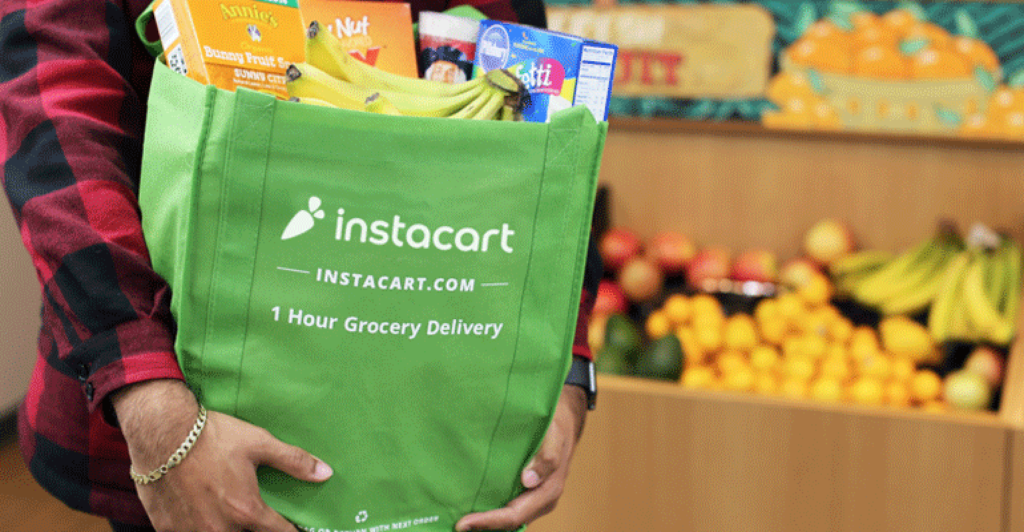It makes sense that Instacart delivered on second quarter 2024 earnings, but it is the way the San Francisco-based grocery delivery retailer did it that is impressive.
Instacart registered substantial year-over-year gains in every major earnings category, including a gross transaction value of almost $8.2 billion, a 10% bump vs. Q2 2023.
The stellar financial report card had Instacart’s stock on the rise during trading on Wednesday, as it was up almost 4% by mid-day.
Total orders came in at 70.8 million, a 10% increase year over year; total revenue was $823 million, which was 15% better than it was at this time last year, and transaction revenue of $595 million was a 17% increase year over year.
Advertising and other revenue came in at $228 million in the second quarter, a 17% rise year over year, and Adjusted EBITDA was $208 million, a whopping 89% better than a year ago.
“We’re continuing to drive operating efficiencies, which gives us the ability to reinvest in initiatives to extend our lead and accelerate online grocery adoption, while expanding profitability,” Instacart CEO Fidji Simo wrote in a letter to shareholders. “We’re excited to build on our momentum in Q3 and beyond.”
Looking at the third quarter, Instacart expects Gross Total Value to fall in the $8.1 billion to $8.25 billion range, which would represent year-over-year growth of 8% to 10%.
Instacart continued to expand its retailer base during the second quarter, adding companies like Sally Beauty. The grocery delivery company also continues to launch ecommerce storefronts for new retailers (over 30 so far this year).
The link to independent grocers was also strengthened as Instacart launched new local independent grocers on its Storefront and Storefront Pro and launched FoodStorm with new independent retailers. Storefront allows grocers of all sizes to get online and add ecommerce to their websites. Foodstorm is Instacart’s order management system for grocery food service, prepared foods, and catering.
New display advertising formats were introduced recently, including Recipes, Occasions, and Bundles that allow brands to promote their products as part of specific occasions or use cases.
Carrot Ads were also launched, which allowed Instacart to power the retail media networks on retailers’ owned and operated sites. New partners include Bi-Rite, Coborns, Weaver, and Woodmans.
Instacart has kicked off an integration into the Instacart Developer Platform with Omnicom, an ad agency holding company. The integration will enable creator campaign content, such as recipes, projects, etc., to be made shoppable and ready for purchase via Instacart.
Instacart updated several delivery processes, including a new feature that helps ensure order accuracy by requiring shoppers to scan a unique item before finalizing the delivery on certain multi-order batches.
Instacart’s smart cart, called Caper Carts, continued to roll out to retailers. Cooperative food wholesaler Associated Wholesale Grocers, Inc., now offers Caper Carts to member retailers.
Earlier this month, Davis Food & Drug, a three-store independent retailer in Utah, said it was replacing most of its traditional shopping carts with Caper Carts, and just this week, Instacart announced it was expanding its partnership with Aldi South Group, which includes a roll-out of Caper Carts in Austria and is the first time ever the carts will be offered in Europe at Aldi’s Sattledt store.


